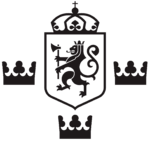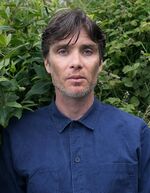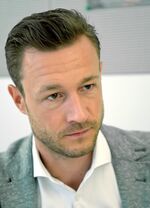Council of State (Acrea): Difference between revisions
(Created page with "{{Infobox executive government | government_name = Government of the Kingdom of Acrea | nativename = ''Nordriges regering'' <br> ''Norska ríkisstjórnin'' | border...") |
No edit summary |
||
| (48 intermediate revisions by the same user not shown) | |||
| Line 1: | Line 1: | ||
{{ | {{Politics of Acrea}} | ||
The '''Council of State''' (Nordic: ''Statsrådet'') is the {{wp|Cabinet (government)|national cabinet}} of [[Acrea]]. The Council of State constitutes the {{wp|Executive (government)|executive authority}} of [[Acrea]], and serves as both a cabinet and privy council to the [[Monarchy of Acrea|King]]. It consists of 16 cabinet positions, consisting of 14 ministries including the Chancellery and two Ministers of State who can interchangeably serve as Deputy Chancellors. | |||
| | |||
| | With the exception of the Chancellor and Foreign Minister, all members of the Council may concurrently be Members of Parliament and Ministers. However, for the duration of their tenure as Minister, their seats in the [[Riksdag]] are deputised for the duration of their term. Being an MP is not a requirement for being eligible to be appointed to a ministerial position. The Council usually convenes weekly in a meeting convened by the Chancellor, most commonly on Thursdays in either the Royal Palace or the Chancellery, and is presided over by the King. | ||
| | |||
| | ==Organisation== | ||
| | The Council is composed of 14 Ministers, each serving as the head of their respective government ministry, and two Ministers of State. The Ministers of State are individuals who can both serve as Deputy Chancellor and do so interchangeably. Although only the Chancellery and Foreign Ministry are traditionally considered part of the executive, in practice the entire Council is considered to be the executive. Additional ministerial positions can be created in the form of ad-hoc ministries or {{wp|Minister without portfolio|ministers without portfolio}}. | ||
| | |||
| | |||
| | As originally established, there was no official order of precedence or succession to the Chancellor. This was changed with the passing of the Instrument of Government in 1792, which established the order of succession as: Minister of the Interior, Foreign Minister, Minister of Defence, and Minister of Justice, with all subsequent being decided by order of seniority of ministry. | ||
| | |||
| | ==Cabinet== | ||
| | {| class="wikitable" | ||
| | |- | ||
| | ! Image | ||
| | ! Incumbent | ||
| | ! Office | ||
| | |- | ||
| [[File:Valen2020.jpg|150px]] | |||
| [[Emma Valen]] | |||
| Chancellor | |||
|- | |||
| [[File:SvendRygg.jpg|150px]] | |||
| Svend Rygg | |||
| Minister of the Interior <br> First Minister of State | |||
|- | |||
| [[File:Vanger.jpg|150px]] | |||
| Ivar Vennerod | |||
| Minister of Defence <br> Second Minister of State | |||
|- | |||
| [[File:Skjaeran22.jpg|150px]] | |||
| Elena Skjæran | |||
| Minister of Foreign Affairs <br> Third Minister of State | |||
|- | |||
| [[File:MattiasStore.jpg|150px]] | |||
| Matthias Støre | |||
| Minister of Finance | |||
|- | |||
| | |||
| Stian Egner | |||
| Minister of Justice | |||
|- | |||
| | |||
| Katja Lokken | |||
| Minister of Education | |||
|- | |||
| | |||
| Marcel Stoltenberg | |||
| Minister of Trade | |||
|- | |||
| | |||
| Meike Bruhn | |||
| Minister of Health | |||
|- | |||
| | |||
| Ingvar Lye | |||
| Minister of Agriculture | |||
|- | |||
| | |||
| Elsa Cernay | |||
| Minister of Climate and the Environment | |||
|- | |||
| | |||
| Rasmus Lystrom | |||
| Minister of Infrastructure | |||
|- | |||
| | |||
| | |||
| Minister of Culture | |||
|- | |||
| | |||
| | |||
| Minister of Labour | |||
|- | |||
|} | |||
Latest revision as of 05:40, 21 October 2023
 |
|---|
| This article is part of a series on the politics and government of Acrea |
The Council of State (Nordic: Statsrådet) is the national cabinet of Acrea. The Council of State constitutes the executive authority of Acrea, and serves as both a cabinet and privy council to the King. It consists of 16 cabinet positions, consisting of 14 ministries including the Chancellery and two Ministers of State who can interchangeably serve as Deputy Chancellors.
With the exception of the Chancellor and Foreign Minister, all members of the Council may concurrently be Members of Parliament and Ministers. However, for the duration of their tenure as Minister, their seats in the Riksdag are deputised for the duration of their term. Being an MP is not a requirement for being eligible to be appointed to a ministerial position. The Council usually convenes weekly in a meeting convened by the Chancellor, most commonly on Thursdays in either the Royal Palace or the Chancellery, and is presided over by the King.
Organisation
The Council is composed of 14 Ministers, each serving as the head of their respective government ministry, and two Ministers of State. The Ministers of State are individuals who can both serve as Deputy Chancellor and do so interchangeably. Although only the Chancellery and Foreign Ministry are traditionally considered part of the executive, in practice the entire Council is considered to be the executive. Additional ministerial positions can be created in the form of ad-hoc ministries or ministers without portfolio.
As originally established, there was no official order of precedence or succession to the Chancellor. This was changed with the passing of the Instrument of Government in 1792, which established the order of succession as: Minister of the Interior, Foreign Minister, Minister of Defence, and Minister of Justice, with all subsequent being decided by order of seniority of ministry.
Cabinet
| Image | Incumbent | Office |
|---|---|---|

|
Emma Valen | Chancellor |

|
Svend Rygg | Minister of the Interior First Minister of State |

|
Ivar Vennerod | Minister of Defence Second Minister of State |

|
Elena Skjæran | Minister of Foreign Affairs Third Minister of State |

|
Matthias Støre | Minister of Finance |
| Stian Egner | Minister of Justice | |
| Katja Lokken | Minister of Education | |
| Marcel Stoltenberg | Minister of Trade | |
| Meike Bruhn | Minister of Health | |
| Ingvar Lye | Minister of Agriculture | |
| Elsa Cernay | Minister of Climate and the Environment | |
| Rasmus Lystrom | Minister of Infrastructure | |
| Minister of Culture | ||
| Minister of Labour |